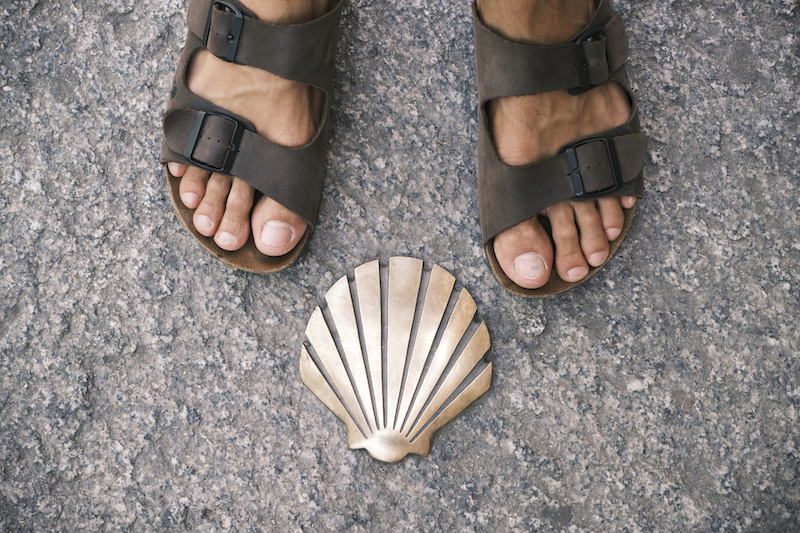As we stand on the threshold of another Lent, we ready ourselves for a more austere pilgrimage of faith. Like the Israelites of old, we are being led into the desert, though for us the journey has as many differences as it has similarities.
Scripture tells us that the 12 tribes of Israel left Egypt singing hymns. They envisioned the land of milk and honey that the prophets had promised, but the reality turned out to be quite different. As they journeyed through the desert beset by hunger that was quenched, not by the leeks and onions they had enjoyed in Egypt but by a type of hoar frost that needed to be gathered and ground into manna, they began to lose heart. Though edible and nourishing, the bread was less than savory, and they soon grew tired of the monotonous fare.
Somewhere along the way, excitement turned into disillusionment, and they began constructing a god of their own making. Having incurred the justice of God, they were denied entrance to the land which they thought would be theirs.
We, on the other hand, enter the Lenten desert, not for 40 years but for 40 days. Rather than singing hymns of resounding joy, we begin the journey by silencing the Gloria and replacing it with Hosea’s plea to turn back to God with all our hearts. Signed with ashes, we bear the mark of God’s protection and much like Cain, we wander through life, knowing that we have sinned. It’s a journey that the Church invites us to repeat year after year because once is never enough.
Despite our best intentions, our baptismal robe becomes soiled. And so, lest at the end of our journey we are forbidden entrance to the Promised Land, the contrite of heart don a virtual robe of sack cloth and ashes. We seek forgiveness through prayer, fasting, almsgiving and the sacrament of reconciliation.
Were it not for Jesus, we would surely perish. Ever grateful, we bend our knee in homage to the Lamb of God and place our life on the altar as a holocaust to be purified by the fire of God’s love.
No longer concealed in a cloud by day or as a pillar of fire by night, bread and wine are transformed into the Body and Blood of Jesus, who gives us life even as he asks us to die. Our journey is shorter than that of the Israelites because the price for our salvation has already been paid. We have been freed, not from the bondage of Pharaoh, but from the bondage of sin.
Despite our liberation, vestiges of the old self continue to beckon, causing us to desecrate the temple, not made of stone but one that has been fashioned in the image and likeness of God. At every Eucharist, we are called to remember that Christ has come, Christ is with us, and Christ will come again.
So, the question remains: will we be ready when he comes, or will we hide because we’ve chosen to remake God in our own image, trusting in idols that fail to satisfy? As we begin Lent, we pray for the strength to remain faithful and vigilant. Confident that God’s grace is forever present, we entreat the Lord to be with us during our sojourn of the heart.
Pilgrims who travel the Camino de Santiago are called forth at the end of Mass to receive a special blessing before continuing, but we don’t have to travel to Spain to experience a pilgrimage of the heart. As we journey from Ash Wednesday to the Sacred Triduum, we too are pilgrims in need of God’s blessing, and so let us pray:
Lord, be for us a companion on the journey, the guide at the intersection, the strengthening during fatigue, the fortress in danger, the resource on our itinerary, the shadow in the heat, the light in the darkness, the consolation during dejection, and the power in our intention. Under your guidance, may we arrive safely and unhurt, and when we reach the end of our journey, may we be strengthened with gratitude and power, secure and filled with happiness, so that we may return to our home in the heart of Jesus our Lord.
It’s been said that the journey from head to heart is the longest journey we take. Lent provides us with a map to help us unite our heart and mind with the will of God. Clearly, there is no better guide than the Church for “when God is for us, who can be against us” (Rm 8:31).
Barbara Hughes is an author, retreat facilitator and spiritual guide. She lives in Virginia Beach and can be reached at [email protected].

